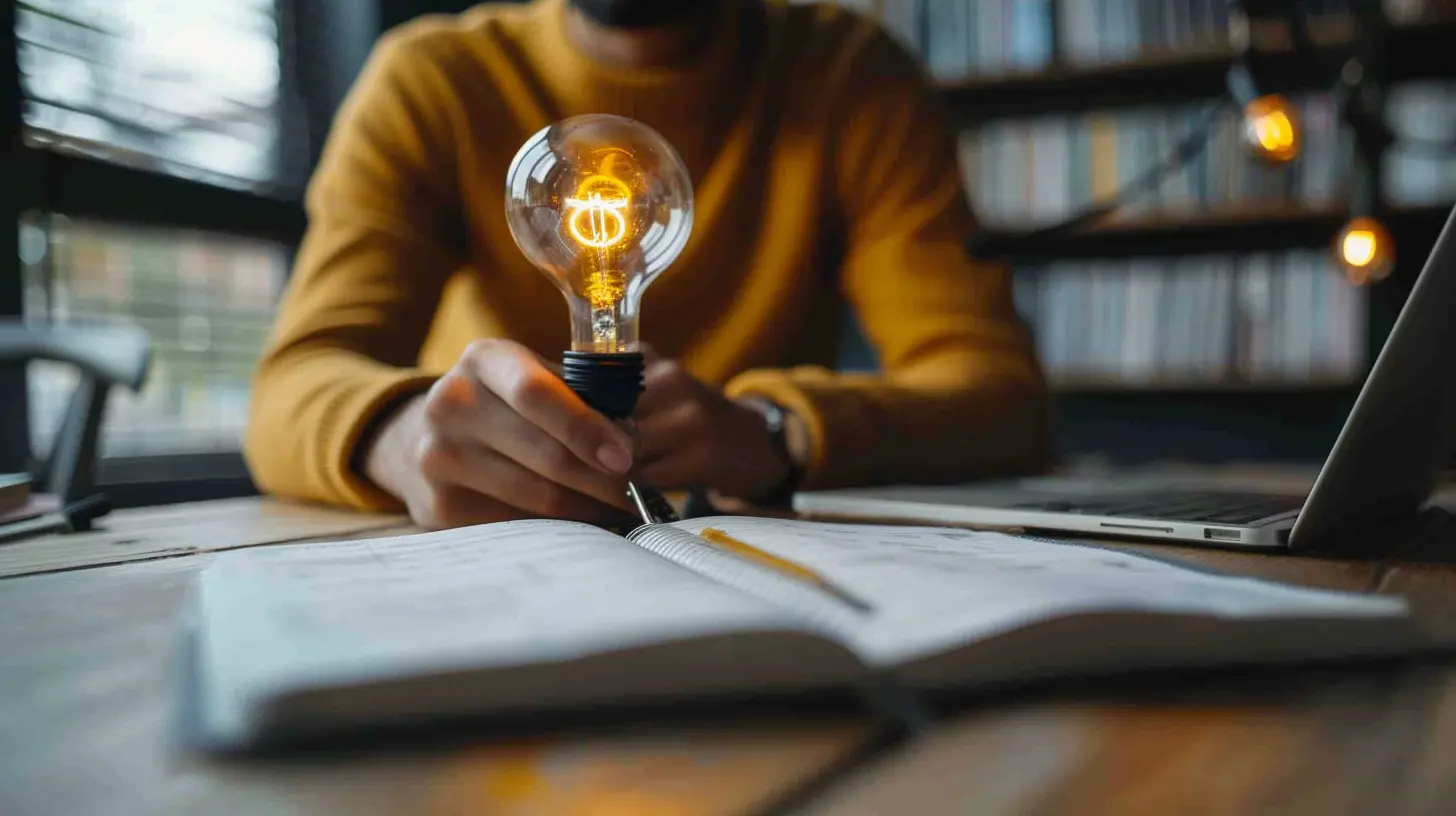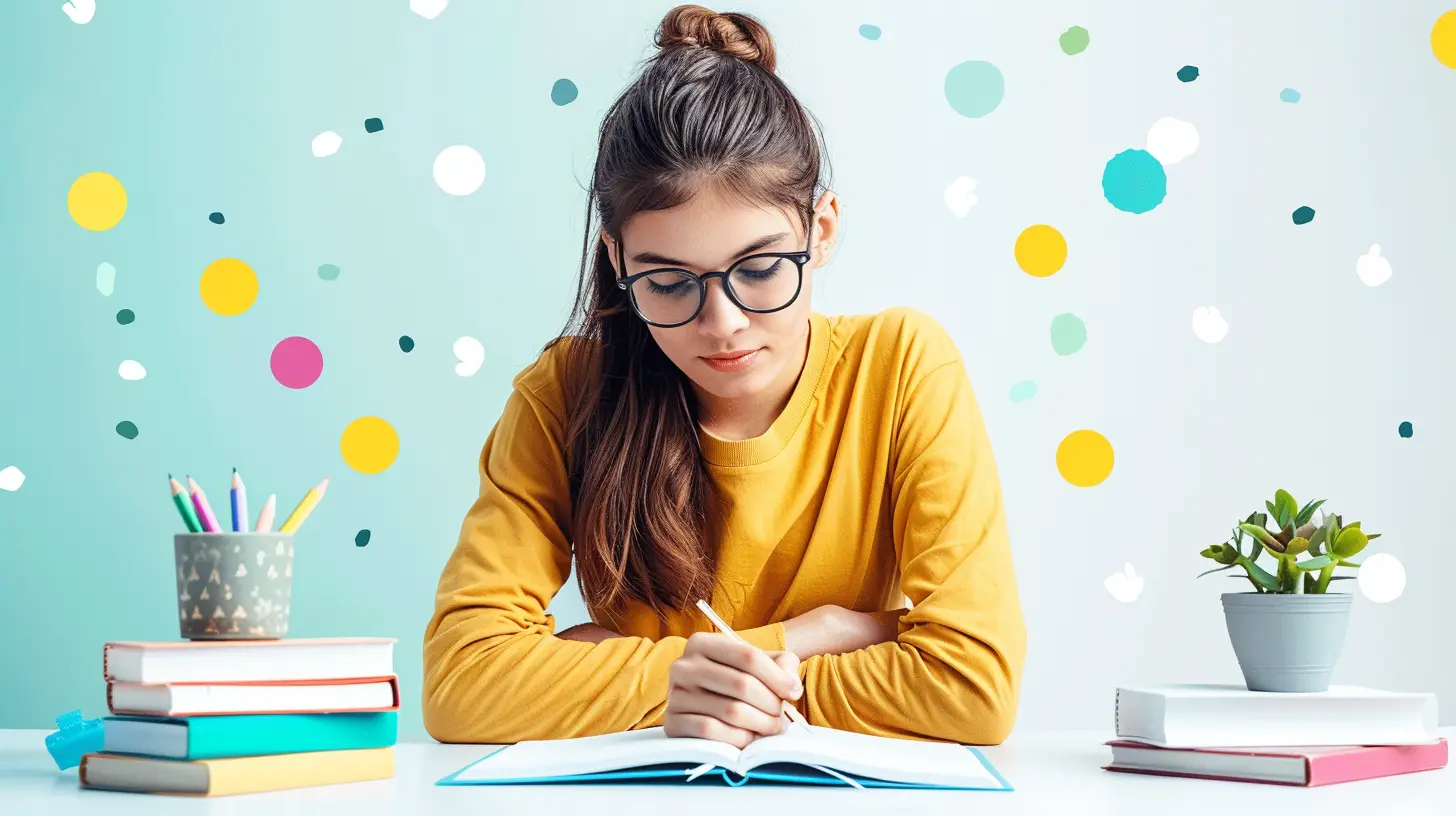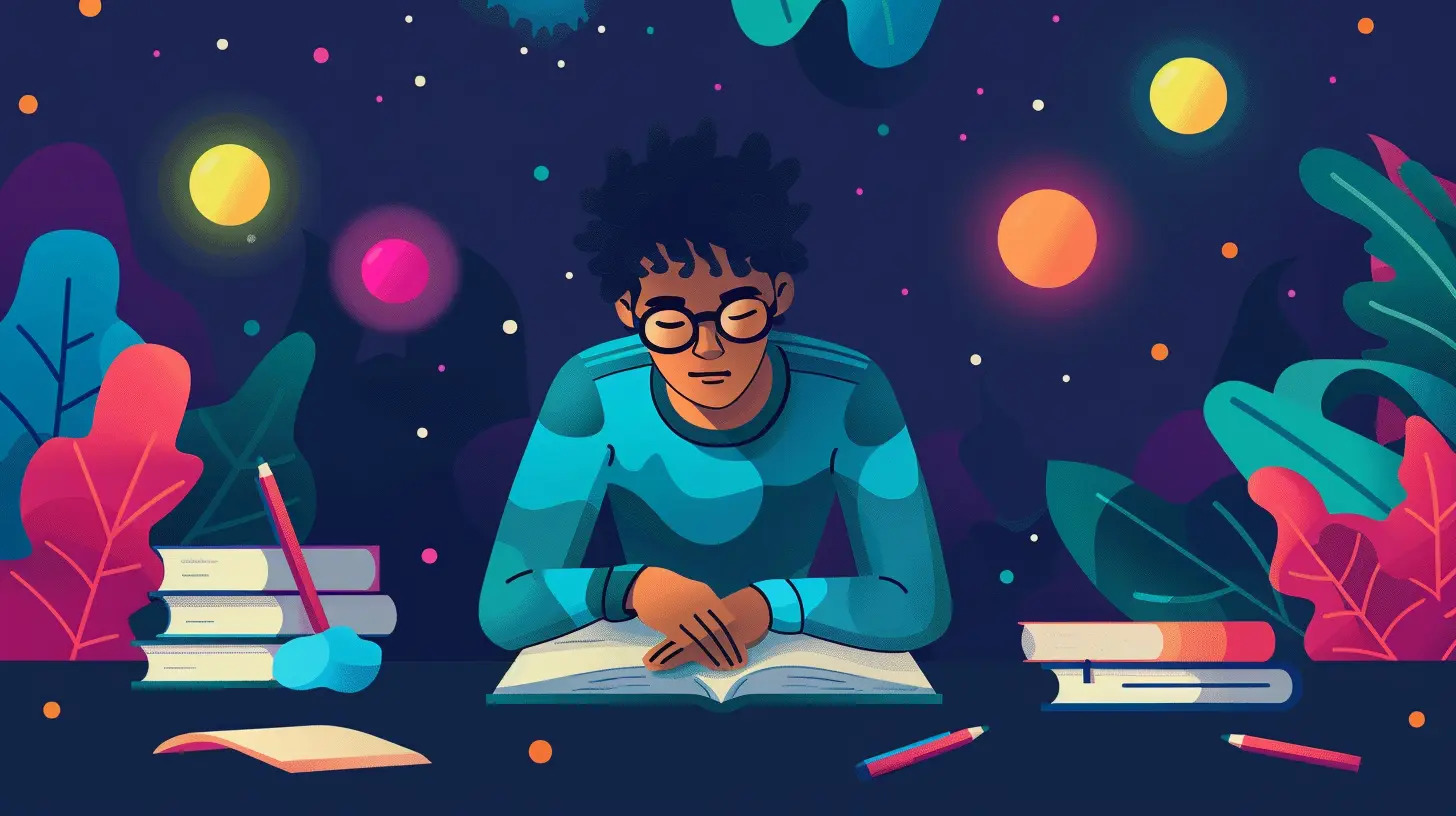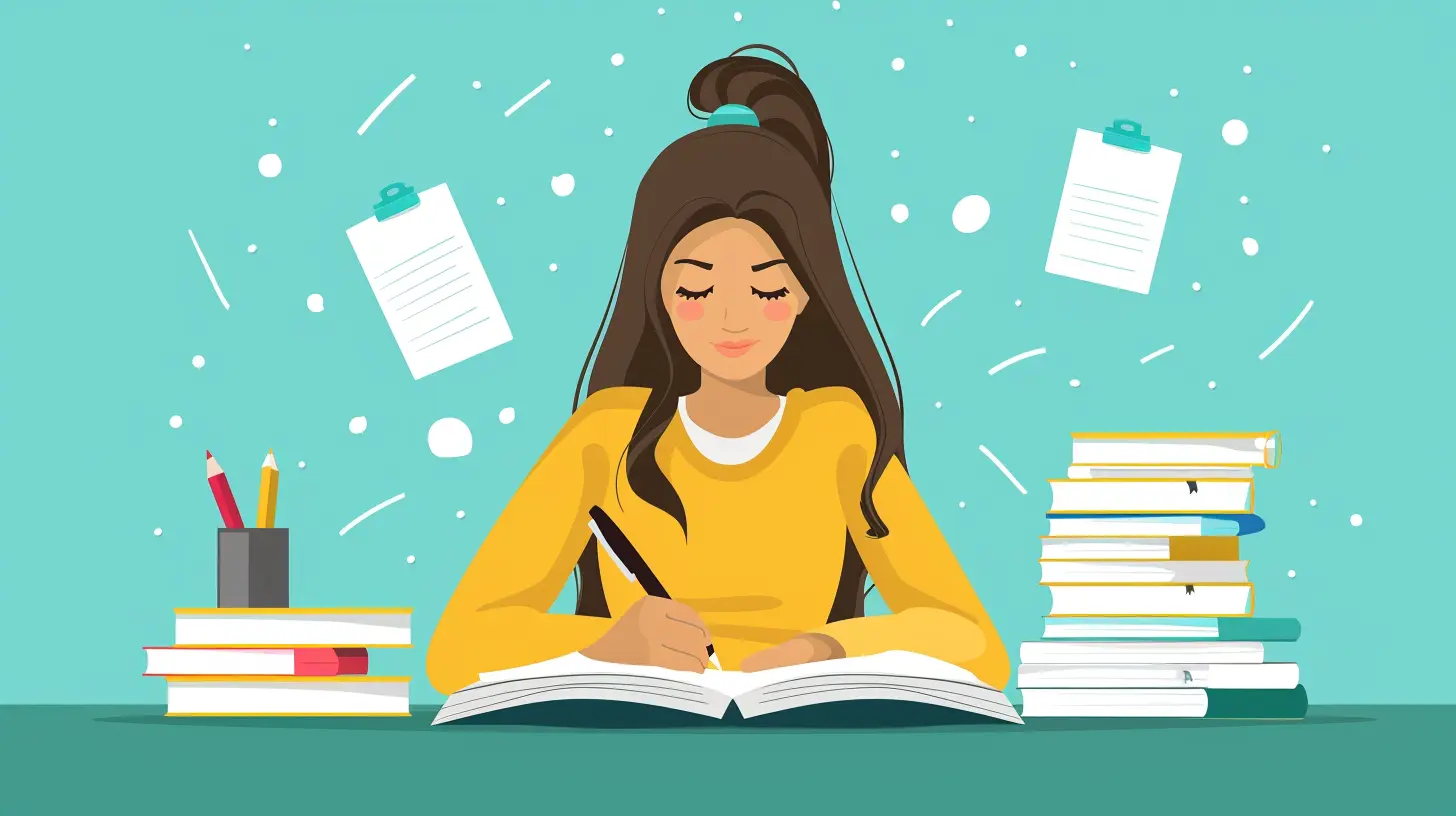How to Use Self-Assessment to Enhance Study Habits
14 August 2025
Let’s be real. Studying isn’t always easy. You sit down with the best intentions—notes in hand, textbook open—and before you know it, you're scrolling through your phone or staring blankly at the wall. Sound familiar?
Well, here’s the thing: most of us were never really taught how to study effectively. We’re told to "study hard" but not how to do it smart. That’s where self-assessment enters the scene. It’s not rocket science, but it is a game-changer.
In this guide, we’re diving deep into how to use self-assessment to enhance your study habits. Whether you're in high school, college, or learning something new on your own, this one's for you.
What Is Self-Assessment, Really?
Think of self-assessment as holding a mirror up to your learning process. It’s the practice of reflecting on what you’ve done, how you’ve done it, and how well it worked.But it’s not just about asking yourself, “How did I do?” It’s about breaking down your performance, spotting patterns, and figuring out your strengths and blind spots.
Why Does It Matter?
Because studying isn’t one-size-fits-all. What works for your classmate might not work for you. Self-assessment helps you personalize your approach so your study habits actually get you the results you want.
The Real Benefits of Self-Assessment
Let's talk perks. Self-assessment isn't just a feel-good, motivational buzzword. It can seriously level up your academic game. Here's how:1. Builds Self-Awareness
Ever studied for hours and still bombed the test? Been there. Self-assessment helps you identify what went wrong. Maybe you weren't focusing on key topics, or maybe your study method just didn’t stick. When you're aware of what's not working, you’re halfway to fixing it.2. Encourages Accountability
When you assess yourself honestly, you stop playing the blame game. You start taking responsibility for your learning, and that kind of attitude can change the entire direction of your academic journey.3. Helps You Study Smarter (Not Harder)
Less time, better results—that’s the dream, right? Self-assessment helps you zero in on what’s effective, so you don’t waste time on methods that don’t give you returns.4. Boosts Confidence
When you can look back and say, “Yeah, I improved here,” that’s a major confidence booster. You’ll walk into your next exam feeling a little less stressed and a lot more prepared.
How to Start Using Self-Assessment in Your Study Routine
Okay, you’re sold on the idea. But how do you actually do it? Here’s a step-by-step roadmap to turn self-assessment into a powerful study tool.Step 1: Set Clear Study Goals
This sounds basic, but it’s often skipped. Vague goals like “study chapter 5” don’t cut it. Instead, aim for something specific and measurable, like:- “Be able to explain the causes of World War I.”
- “Practice 10 geometry problems on triangle similarity.”
When you know exactly what you're aiming for, it’s way easier to check if you hit the mark later on.
Step 2: Reflect After Each Study Session
Once you’re done studying, don’t just close your books and move on. Take a few minutes to reflect. Ask yourself:- What did I understand really well?
- What confused me?
- Did I stick to my plan?
- Was my focus solid, or did I get distracted?
Jot your answers down. This reflection becomes a mini progress report for next time.
Step 3: Use a Study Journal or Self-Assessment Template
If you're serious about improving, make it a habit. Use a notebook, app, or even a simple Word doc. Create a template like:| Date | Topic | Goal Met? | What Worked | What Needs Work | Plan for Next Time |
|------|-------|------------|-------------|------------------|--------------------|
| May 10 | Biology - Cells | Yes | Flashcards, Diagrams | Got distracted | Study earlier in day |
This kind of structure keeps your reflections consistent and actionable.
Step 4: Test Yourself Regularly
One of the best forms of self-assessment is good ol’ retrieval practice. That means testing your knowledge without looking at your notes.You can try:
- Flashcards
- Practice quizzes
- Teaching the topic to someone else (or to your dog—no judgment!)
- Writing out what you remember
If you struggle to recall something, that’s a cue to revisit that topic. Simple, but so effective.
Step 5: Track Your Progress Over Time
Don’t just assess once and forget about it. Review your journal or notes weekly to see patterns. Are there subjects you're consistently good at? Topics that always trip you up? Study methods that give you better results?Use this info to fine-tune your future strategy. If something’s broken—fix it. If something’s working—double down on it.
Common Self-Assessment Mistakes You Should Avoid
Here’s the kicker: self-assessment only works if you’re real with yourself. It’s easy to fall into these traps:1. Being Too Hard (or Too Easy) on Yourself
Some people beat themselves up over the smallest mistakes. Others sugarcoat poor performance. Neither helps. Aim for honest reflection—constructive, not critical.2. Skipping It Altogether
When you’re crunched for time, it’s tempting to skip self-assessment. But those few minutes of reflection can save you hours of ineffective studying later.3. Not Following Through
Spotting an issue but doing nothing about it defeats the whole purpose. Your reflection should end in action: a tweak to your method, schedule, or resources.Real-Life Example: Sam's Study Turnaround
Let’s paint a quick picture. Meet Sam. Sam was a decent student but always hovered around a B-. He crammed a lot and often felt anxious during exams.Then Sam started using self-assessment. After each study session, he wrote down what worked and what didn’t. He discovered he was wasting time re-reading instead of practicing problems.
So he changed it up. He started using practice quizzes and focused on areas he often forgot. He even realized he focused better at night than in the afternoon.
Three weeks later, Sam aced his next test.
Moral of the story? Little changes make big impacts when they’re intentional.
Tools to Help You With Self-Assessment
You don’t need fancy gadgets, but a few tools can make the process easier:- Google Docs/OneNote: Great for keeping your study journal neat and accessible.
- Quizlet/Anki: Excellent for self-testing.
- Pomodoro Timers: Helps you stay focused during study sessions.
- Reflectly/Daylio: Journaling apps that encourage regular reflection.
Make Self-Assessment a Habit, Not a Hassle
Look, you’re busy. School, work, life—not easy to juggle. But self-assessment doesn’t have to be a massive time suck. A quick 5-minute reflection after studying can work wonders.Here’s how to stick with it:
- Set a reminder: Add a calendar alert or sticky note near your desk.
- Pair it with something you already do: Like brushing your teeth or logging out of your laptop.
- Keep it simple: Don’t aim for perfect reflections—just honest ones.
The goal is consistency. Over time, self-assessment becomes second nature—and so does smarter studying.
Final Thoughts: Self-Awareness is Your Secret Weapon
You’re not just a student. You’re a learner. And learners who know themselves—how they think, how they focus, how they improve—have a huge edge.Self-assessment turns your study routine into a feedback loop. It keeps you growing, adapting, and laser-focused on what really matters.
So next time you hit the books, don’t just dive in. Pause, reflect, and ask yourself the big question: “How can I make this better?”
Because with a little self-awareness and a lot of heart, you won’t just study—you’ll thrive.
all images in this post were generated using AI tools
Category:
Self AssessmentAuthor:

Anita Harmon
Discussion
rate this article
1 comments
Oliver Diaz
Unlocking the secrets of self-assessment is like finding the cheat codes to your brain! With a little introspection, you can level up your study habits faster than a caffeine-fueled cramming session. Game on, scholars!
September 9, 2025 at 4:24 AM

Anita Harmon
Absolutely! Self-assessment is a powerful tool that can supercharge your learning and help you study smarter, not harder. Game on!


